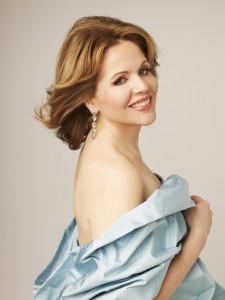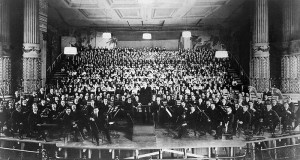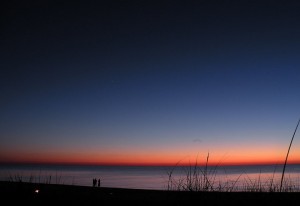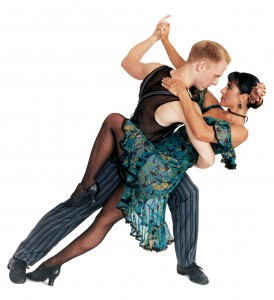Snowed In: The Cleveland Orchestra in Ann Arbor!
The Cleveland Orchestra arrived in Ann Arbor on Tuesday afternoon, just before what was supposed to be the “snowpocalypse” hit the region. Lucky for us, the Orchestra made it just in time to perform a fantastic concert at Hill Auditorium Tuesday night, and those who braved the frightening weather were not disappointed. Unfortunately for Chicago, The Cleveland Orchestra was unable to leave Ann Arbor for the Windy City on Wednesday morning, as Illinois had declared a state of emergency. Their concert at Chicago’s Orchestra Hall was canceled, so they were stranded in Ann Arbor for an extra day. We invited them to come to see Wynton Marsalis at the Jazz at Lincoln Center Orchestra later that evening, but when we heard Wynton and the JLCO didn’t leave Toronto due to weather conditions, thus canceling our concert, we thought of a Plan C!
Classical Revolution Ann Arbor is a local chamber music collective that includes many U-M students and amateur musicians. They meet every Wednesday at Silvio’s Organic Pizza on N. University at 7:30pm for jam sessions. They also pop up at other locations around town to play chamber music in non-traditional spaces. Led by Ed Baskerville, Classical Revolution is open to anyone who wants to bring their instrument and jam! Ed brings stands and a huge pile of music to every gathering. Silvio’s has become CRAA’s home–it even has an old piano in there for piano trios, quartets, quintets, and any other configurations they want to make!
Knowing that Classical Revolution had a jam session Wednesday night, I got in touch with Carol Lee Iott, Director of Orchestra Personnel at The Cleveland Orchestra, and asked her to spread the word to the Orchestra. Ed warned Silvio that we might have an extra-large turnout, and he rounded up extra stands, music, local musicians, and instruments! Carol Lee got a great response from Orchestra musicians, and Silvio’s was at capacity after just about an hour!
The first quartet consisted of Bill Preucil, TCO’s very own concertmaster, TCO violist Joanna Patterson, cellist Ed Baskerville, and U-M student violinist Dan Winnick. Many other TCO musicians showed up and played throughout the evening, including principal oboe Frank Rosenwein, principal flutist Joshua Smith, horn Hans Clebsch, bassists Charles Carleton and Scott Dixon, cellists Charles Bernard and Martha Baldwin, and violinists Jung-Min Amy Lee and Sonja Braaten Molloy. Several other TCO musicians and administrative staff hung out at Silvio’s until midnight to watch, listen, and enjoy some pizza and beer! Music director Franz Welser-Möst even stopped by for awhile to watch.
The highlights of the night? When pianist Pierre-Laurent Aimard, who played the Schumann Piano Concerto the night before on stage at Hill, sat down at the old upright piano with three others to play Brahms’ g-minor piano quartet! We also witnessed a rare performance of an arrangement for three basses of Rachmaninoff’s Vocalise. Cellist Charles Bernard borrowed a U-M student’s cello to play a Brahms piano trio (many TCO musicians’ instruments were already on their truck to New York, so students shared theirs), and the student whispered to me when Bernard finished: “That was my cello!” I don’t think there was ever an all-TCO group–the TCO musicians were so excited to play with students.
All in all, it was a great way to spend a snow day. It was so wonderful to see these first-class musicians let loose and integrate with the Ann Arbor community, and make the best of an unfortunate situation.
UMS Summers “Up North”
Ah, summer. For many Michiganders, that means packing up the car and heading to a place we lovingly call “Up North,” the land of fresh air, blue skies, and sandy shores that stretch on for miles. Head north of Cadillac and west of Houghton Lake this summer, and you’ll find a myriad of arts opportunities and UMS connections.
Twenty minutes southeast of Traverse City, Interlochen Center for the Arts is nestled between tall timbers and two inland lakes. Catch an encore performance of the Punch Brothers and Chris Thile on July 17 (they performed to a sizable crowd at the Power Center this past fall) or get a sneak peak of the Paul Taylor Dance Company on July 23 before their week-long residency in Ann Arbor this fall.
Interlochen is also home to a world-famous summer arts camp that draws young musicians, dancers, writers, visual artists, and more from around the globe for two to six weeks of intensive study, and a high school arts academy. Its list of high-performing alumni is astonishingly long, and includes musicians in the Berlin Philharmonic, The Cleveland Orchestra, and Detroit Symphony Orchestra; dancers and directors of the Martha Graham Dance Company, Mark Morris Dance Company, and José Limón Dance Company; jazz musicians Regina Carter and Chris and Daniel Brubeck, and many more. In any given year, you’re bound to find at least a few alumni on the UMS schedule. In fact, UMS also used the Interlochen Academy Orchestra in the past for performances of Handel’s Messiah.
But that’s not the only place Interlochen alums appear. Several members of the UMS staff are also alumni. I myself have wonderful memories of six summers in the All-State piano, band, and orchestra programs and one summer on faculty as a flute instructor. UMS Choral Union conductor Jerry Blackstone led the University of Michigan All-State Choirs for 17 summers in addition to serving as Director of the All-State Program for several years. And UMS President Ken Fischer met his wife Penny there during summer camp in 1961 and now serves on the Board of Trustees.
Speaking of Ken, if you’re traveling to the Petoskey or Charlevoix areas, you may bump into him around town, as he often spends a few days each summer meeting with members of the UMS National Council, donors, and new friends of UMS who call this region home for part or all of the year. For members of the U-M Alumni Associations who travel to Camp Michigania, he also gives annual talks at the Education Center.
Whatever your summer plans, we’d love to hear how you are making the arts a part of them, whether in northern Michigan, here in Ann Arbor, or by traveling to Stratford, Aspen, Tanglewood or one of dozens of other summer festivals.
UMS Announces 10/11 Choral Union Series & Piano Series
The University Musical Society is pleased to announce its 132nd Annual Choral Union Series, with 10 concerts in Hill Auditorium. The series includes:
Mariinsky Orchestra
Valery Gergiev, conductor
Denis Matsuev, piano
Sunday, October 10 | 4 pm
Hill Auditorium
Gergiev’s long association with the Mariinsky Theatre — including 10 UMS appearances, most recently the five-concert cycle of Shostakovich symphonies —has raised the ensemble’s profile to the point where it is now widely regarded one of the most dynamic and exciting ensembles on the world stage today. The fiery Russian pianist Denis Matsuev has received worldwide acclaim for his rare combination of technical virtuosity and deep musicality since his stunning victory at the 11th International Tchaikovsky Competition in Moscow in 1998. “His technique is phenomenal: blistering passagework, steely chords. Perhaps he is the new Horowitz.” (London Times)
Program
Rachmaninoff Piano Concerto No. 3 in d minor, Op. 30
Mahler Symphony No. 5
Venice Baroque Orchestra
Robert McDuffie, violin
Wednesday, October 27 | 8 pm
Hill Auditorium
The Venice Baroque Orchestra was founded in 1997 by harpsichordist Andrea Marcon and is recognized as one of Europe’s premier ensembles devoted to period instrument performance. For this UMS debut, they perform music of their home city — Venetian composer Antonio Vivaldi’s The Four Seasons — paired with an “American Four Seasons” by Philip Glass featuring violinist Robert McDuffie, who has worked closely with Glass over the years and who made his UMS debut with the Jerusalem Symphony in 2008.
Program
Vivaldi The Four Seasons, Op. 8 (1723)
Glass Violin Concerto No. 2: “The American Four Seasons”
Murray Perahia, piano
Wednesday, November 10 | 8 pm
Hill Auditorium
Anyone who has heard one of Murray’s Perahia’s previous 11 UMS appearances would have to agree with the assessment of The Los Angeles Times: “Perahia is a marvel.” In the more than 35 years he has been performing on the concert stage, he has become one of the most cherished pianists of our time. “Perahia may be the closest thing to a pure conduit of music — one in which the imagination and skill of the player are entirely at the service of the composer, not the player’s ego…The soul of a poet, the mind of a thinker, the hands of a virtuoso: No wonder audiences love this guy.” (The Seattle Times)
Program to be announced.
 Renée Fleming, soprano
Renée Fleming, soprano
Sunday, January 16 | 4 pm
Hill Auditorium
One of the most beloved and celebrated musical ambassadors of our time, soprano Renée Fleming captivates audiences with her sumptuous voice, consummate artistry, and compelling stage presence. In addition to commanding the stages of the great opera houses of the world, she hosts the Metropolitan Opera’s Live in HD Series for movie theaters and television with behind-the-scenes interviews. Her fame is such that perfumes, desserts, and flowers have all been named after her, but those superficial accolades pale in comparison to her devoted following of opera lovers around the world. This great American soprano returns to UMS after her 1997 recital and her 2005 appearance in a concert version of Richard Strauss’s Daphne.
The Cleveland Orchestra
Franz Welser-Möst, conductor
Pierre-Laurent Aimard, piano
Tuesday, February 1 | 8 pm
Hill Auditorium
Founded shortly after the end of World War I, the Cleveland Orchestra has been guided by seven music directors, each of whom has left his mark on the widely admired “Cleveland” sound: Nikolai Sokoloff, Artur Rodzinski, Erich Leinsdorf, George Szell, Lorin Maazel, Christoph von Dohnányi, and Franz Welser-Möst, who leads the ensemble and the French pianist Pierre-Laurent Aimard in this performance.
Program
Bartók Music for Strings, Percussion, and Celeste, Sz. 106, BB 114
Schumann Piano Concerto in a minor, Op. 54
Wagner Overture to Tannhäuser
Rafał Blechacz, piano
Friday, February 11 | 8 pm
Hill Auditorium
In October 2005, the 20-year-old Rafał Blechacz, an unassuming young man from a small town in northern Poland, arrived in Warsaw for the 15th International Chopin Competition. His sensational performance won not only the competition, but also all four special prizes for the polonaise, mazurka, sonata, and concerto performance — in fact, one of the judges remarked that he “so outclassed the remaining finalists that no second prize could actually be awarded.” Blechacz was the first Pole to win the prize since Krystian Zimerman 30 years earlier. Notwithstanding his young age, his playing offers poetry, maturity, poise and concentration, as well as a phenomenal and luminous technique. “How reassuring it is to see one so young putting poetry first…we were all on another planet.” (Financial Times)
Program to be announced.
 Mahler’s Symphony No. 8
Mahler’s Symphony No. 8
Detroit Symphony Orchestra
UMS Choral Union
U-M Chamber Choir
U-M University Choir
U-M Orpheus Singers
MSU Children’s Choir
Leonard Slatkin, conductor
Saturday, March 19 | 8 pm
Hill Auditorium
In commemoration of the 150th anniversary of Gustav Mahler’s birth and the 100th anniversary of his death, UMS is collaborating with the DSO and Michigan Opera Theatre to present a spectacular, not-to-be-missed performance of Mahler’s monumental Symphony No. 8, also known as “Symphony of a Thousand.” The first performance of this “choral symphony” featured a chorus of about 850, with an orchestra of 171, leading Mahler’s agent to dub to the work “Symphony of a Thousand.” While Mahler himself did not approve of the title, it nevertheless remains associated with this work, which is rarely preformed due to the massive forces required to do it justice.
Bach’s Mass in b minor
Bach Collegium Japan
Masaaki Suzuki, conductor
Thursday, March 24 | 8 pm
Hill Auditorium
Founded in 1990 by Masaaki Suzuki with the aim of introducing Japanese audiences to period instrument performance of great works of the Baroque period, the Bach Collegium Japan comprises both orchestra and chorus. The group has developed a formidable reputation through its recordings of J.S. Bach’s church cantatas, and returns to Ann Arbor after its 2003 St. Matthew Passion in St. Francis of Assisi Catholic Church. Widely regarded as one of the supreme achievements in classical music, the Mass in b minor was composed over a period of 25 years and assembled in its present form in 1749, the year before Bach died. “I have never heard period instruments played with such purity of tone, so reliably in tune. The small, precise, dramatically alert chorus breathed fire but also revealed a heartbreaking tenderness.” (The Los Angeles Times)
St. Petersburg Philharmonic
Yuri Temirkanov, conductor
Nikolai Lugansky, piano
Saturday, April 2 | 8 pm
Hill Auditorium
The Russian city of St. Petersburg boasts two world-class orchestras, and UMS has enjoyed a long relationship with each. The St. Petersburg Philharmonic has appeared in Ann Arbor five times under Yuri Temirkanov’s leadership. With a history dating back more than 200 years, the St. Petersburg Philharmonic is embedded with musical history, performing the world premiere of Beethoven’s Missa Solemnis in 1824, as well as Tchaikovsky’s Symphony No. 6, Prokofiev’s Symphony No. 1, and many works by Shostakovich. Pianist Nikolai Lugansky, who won the 1994 Tchaikovsky Piano Competition, makes his UMS debut. A Russian newspaper said of his performance in the final round of competition: “It was like getting sunstroke, a musical shock. Nobody could imagine that the soul of this unpretentious, modest young man, with his ascetic, but also poetic appearance, held such a volcano inside with inspired and resolute control.”
Program
Rimsky-Korsakov Scheherazade, Op. 35
Rachmaninoff Piano Concerto No. 2 in c minor, Op. 18
Liebeslieder Waltzes
Genia Kühmeier, soprano
Bernarda Fink, mezzo-soprano
Michael Schade, tenor
Thomas Quasthoff, bass-baritone
Malcolm Martineau, piano
Justus Zeyen, piano
Saturday, April 23 | 8 pm
Hill Auditorium
After nearly a decade in which he composed no vocal music at all, Schumann made a striking return to the genre with the Spanisches Liebeslieder song collection, which combines songs for solo voice with duets and quartets. A generation later, Brahms took the same instrumentation — vocal quartet plus four-hand piano —and composed the Liebeslieder and Neue Liebeslieder Waltzes. These three works serve the centerpiece of a program that also includes Brahms’ composition for vocal quartet and piano, performed by a brilliant quartet of musicians, including bass-baritone Thomas Quasthoff, who last appeared at UMS in a Lydia Mendessohn Theatre recital in 2000.
Program
Schumann Spanische Liebeslieder, Op. 138
Brahms Liebeslieder Waltzes, Op. 52
Brahms Four Songs from Quartets for Four Voices and Pianos, Ops. 64 & 92
Brahms Neue Liebeslieder Waltzes, Op. 65
Tickets for the 10-concert series range from $100-$650. Subscription renewal packets and brochures will be mailed in early May.
In addition to the 10-concert Choral Union Series, five events listed above will be packaged as a Piano Series (Kirov Orchestra with Denis Matsuev, Murray Perahia, Cleveland Orchestra with Pierre-Laurent Aimard, Rafał Blechacz, and St. Petersburg Philharmonic with Nikolai Lugansky). Prices for the five-concert Piano Series range from $50-$310.
Tickets to individual events on the series go on sale on Monday, August 23 (via www.ums.org) and Wednesday, August 25 (in person and by phone).




